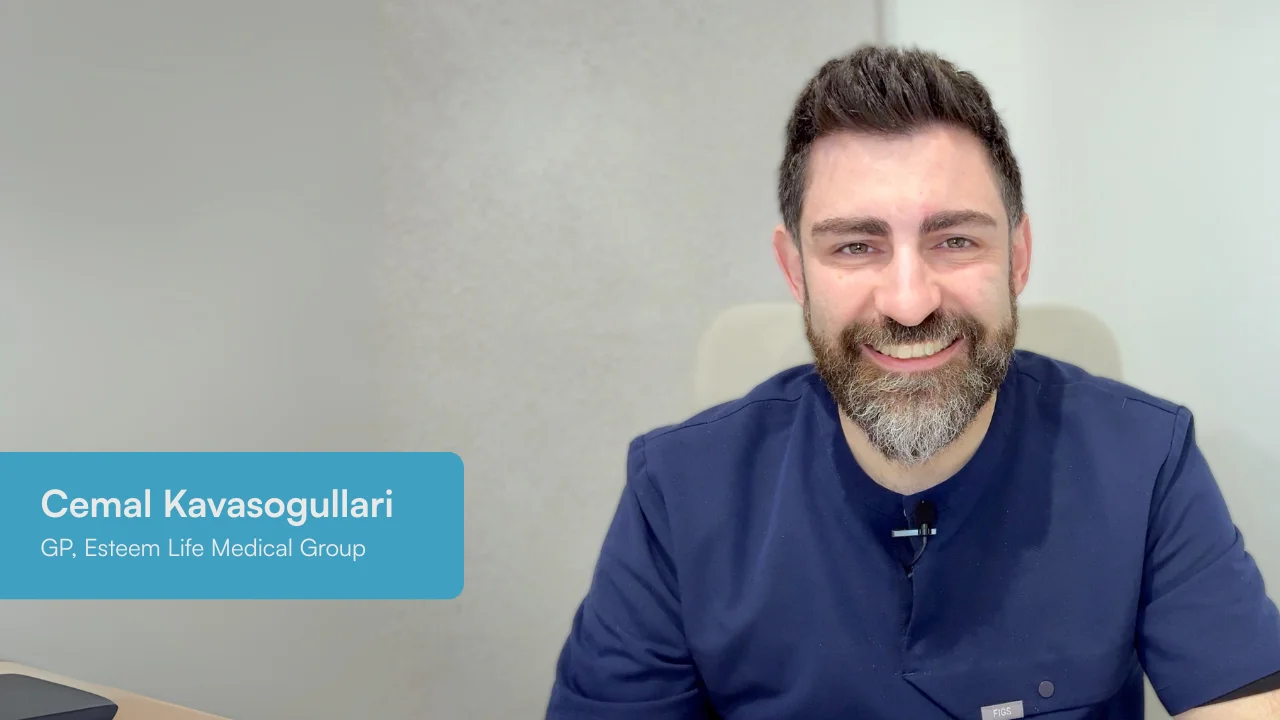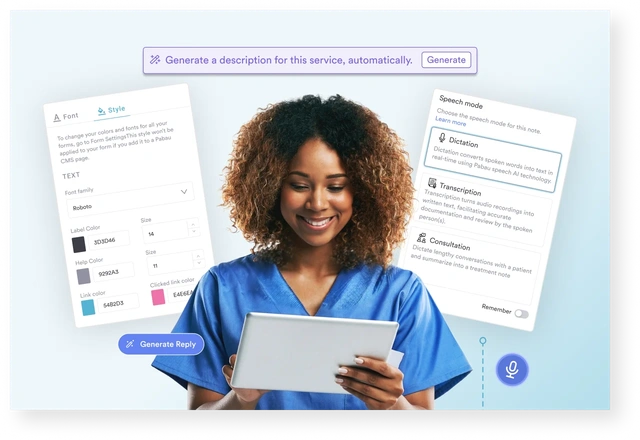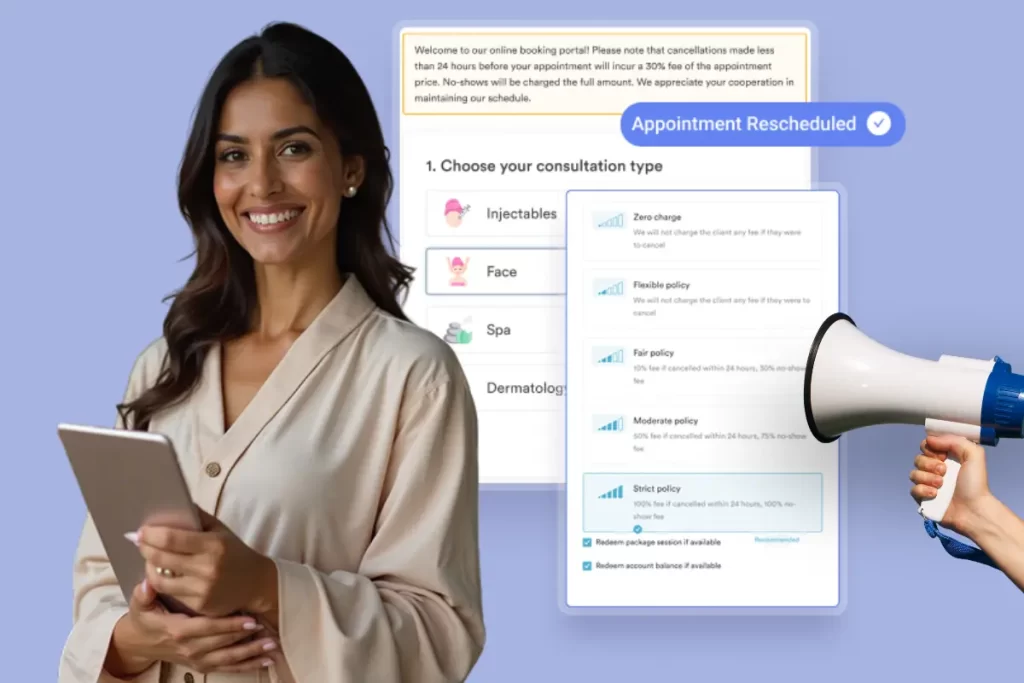You wouldn’t buy a pair of jeans without trying them on and making sure that they fit, right?
The same logic applies to consultations. They play a vital role in the client journey because this is where you get to figure out if you, the practitioner, and the client are a good match for each other.
Consultations aren’t just paperwork and pleasantries. From establishing trust and setting realistic expectations to identifying any risks or potential red flags, consultations are the compass that guides your journey towards enhancing beauty responsibly.
In this blog, we’ll dive into the importance of consultations for med-spas and medi-aesthetic practitioners and why they should play a vital part in your booking process.
Let’s unpick why consultations matter for clients and practitioners.
Why are consultations important?
- Patient assessment: To tailor treatments to individual needs.
- Informed decision-making: Empower clients with treatment information.
- Medical history review: Learn about any previous treatment the client has had
- Safety precautions: Identify allergies, contraindications, or any potential red flags.
- Expectation management: Set realistic treatment expectations.
- Building trust: Establish rapport and trust with clients.
- Quality assurance: Explaining your high standards of care and safety.
What happens at a consultation?
A practitioner will have a number of goals that they want to get out of a consultation.
- To establish a strong and positive connection with the client.
- To collect information about their medical history and previous treatment.
- To assess the client’s suitability for treatment.
This stage is pivotal as it allows you to understand the client’s expectations, explore various treatment options, and ensure that the client has a clear understanding of these options.
The overall aim is to set the stage for successful treatment outcomes.
How to have a successful consultation?
1. Discuss goals and expectations
During the consultation, it is crucial to openly discuss your client’s goals and expectations.
This transparent dialogue ensures that both parties are on the same page, leading to a personalized treatment plan that aligns with their desires and ensures realistic outcomes, fostering a positive patient-practitioner relationship.
The same applies to the leads that you’ve chased, who have finally booked a consultation with you – a successful consultation with the right practitioner can build trust and actually convert them into your loyal customers.
2. Ask their motivations
It’s not just medical conditions that are important to note. In addition, don’t forget to dive into their motivations, like what prompted them to book this consultation today?
In today’s world, social media, filters, and celebrity culture has distorted people’s ideas of what “normal” looks like. Sometimes, all this can mess with our idea of beauty and make us think that we need to do things we don’t need to.
This is why you should try and establish your clients are seeking treatment for the right reasons
3. Check any concerns
When discussing your client’s goals, expectations and motivations it is imperative to address any client concerns attentively.
This proactive approach not only helps in building trust but also allows you to tailor the treatment plan, addressing apprehensions and ensuring the client feels comfortable and confident throughout their aesthetic journey.
4. Gather their medical history
It’s important to gather a thorough understanding of a client’s medical history during the initial consultation. This information will equip you with the necessary insights to assess a client’s suitability for a specific treatment.
For instance, individuals with a medical history of metabolic disorders or inflammatory diseases may not be ideal candidates for procedures like dermal fillers.
5. Record any previous treatments
When it comes to making the right treatment plan for your client, it’s also important to document their past experiences and treatments that they’ve had in aesthetics.
Learning about any specific treatments or procedures they have undergone, the dates of these interventions, the locations where they were performed, and the professionals involved is really important. They may have gone abroad for treatment and that’s important information to have – especially if it’s not gone to plan or they’re seeking corrective treatment.
6. Facial and skin assessment
During the consultation, it’s super important to conduct a thorough skin assessment. This assessment, which takes into account things like medical history and specific skin issues like acne or dryness, helps you figure out the best treatment for your client.
One key part of this assessment is the Fitzpatrick scale for skin color and tanning ability. It’s not just about planning the right treatment – it also helps clients get to know their skin better and understand what it needs for better skin health.
7. Document the consultation
Taking a few extra minutes to snap these photos can yield substantial benefits. Not only do these photos help you visually track the progress of your treatments, but they also become invaluable when you’re faced with patient complaints or inquiries.
So, consider them as a vital part of your practice, aimed at improving patient care, record-keeping, and transparency. It’s a small investment of time that pays off significantly in the long run.
8. Treatment planning
At this point, you should cover not only the different treatment choices but also the possibility of not getting treatment at all.
When it comes to cosmetic treatments, you need to understand your client’s medical suitability, indications, contraindications, as well as taking into account the patient’s personal preferences.
You should talk to the clients about what they can expect, especially when it comes to how much they can spend. Budget can affect the options available and what results they can anticipate.
Your expertise allows you to explain different treatment choices and what results they might bring. This helps your clients make informed decisions that match their goals.
8 essential consultation questions
Asking questions are essential in helping you gain an understanding of your client’s motivation for seeking treatment and what their expectations are in terms of results.
It’s important to note that the initial consultation isn’t just an evaluation of the client’s suitability for treatment; it’s also an opportunity for them to familiarize themselves with you, your business, and address any questions or concerns they may have.
Here are some of the questions you should include:
- What has prompted you to seek treatment today?
Understanding your client’s desired outcomes is essential to tailor the treatment plan accordingly and effectively set their expectations. - What are your primary concerns or issues?
Having insight into their prior treatment experiences allows you to evaluate their suitability for the procedure and potential interactions with past treatments. - Have you had any previous skin treatments or surgeries?
Knowing your client’s treatment history helps you avoid potential contraindications, complications, or interactions with previous procedures. - Do you have any allergies or skin sensitivities?
Allergies and sensitivities can impact the choice of products or procedures, ensuring a safe and effective experience for the client. - Are you taking any medications or supplements?
Some medications and supplements can affect the skin’s sensitivity and healing processes. This information helps you plan safe treatments. - Are there any medical conditions or recent health changes we should be aware of?
Some medical conditions may contraindicate certain treatments or require adjustments for safety. Staying informed about your client’s health status is crucial. - What is your lifestyle like?
Lifestyle factors, such as diet, stress, and sleep, can significantly influence skiing health. Understanding these factors allows you to make holistic recommendations for better results. - Do you have a specific timeline in mind for achieving your skincare goals?
Knowing the client’s timeframe and any upcoming events or occasions allows you to recommend treatments that align with their schedule.It helps in setting realistic expectations.
Following up after the consultation
After each consultation, make an extra effort:
- Recommend suitable products and routines for their specific needs to show you care about their well-being and satisfaction.
- Before they leave, ensure you’ve answered all their questions and made them feel comfortable discussing any concerns. This further builds trust and peace of mind.
- After the consultation, send over your treatment and check in to see if they have any further questions, as well as ask how they’re feeling about the upcoming procedure. This shows your dedication to their happiness.
- Express gratitude for choosing your practice and excitement about their journey to their aesthetic goals. This shows genuine care.
Consultations for compliance purposes
By placing a premium on open communication, informed consent practices, and meticulous assessments, you can enhance client journeys and ensure safer, more effective treatments.
- Full disclosure: In this industry, transparency regarding risks and complications is of utmost importance. You must thoroughly discuss all potential adverse effects and ensure they are part of the informed consent process.
- Client education: Clients often underestimate the risks, presuming complications to be minor, such as bleeding and bruising. You must take the responsibility of educating them about more severe, life-altering risks associated with certain treatments.
- Duty of care: As practitioners, you must have a moral and ethical obligation to disclose all material risks associated with a procedure.
Shelly Hemmings is a Cosmetic Insurance Handler with insurance company Hamilton Fraser. She has 15 years of insurance experience and five years directly within the aesthetics sector.
She’s all about sharing her knowledge, from hosting webinars to giving talks across the UK – and we were lucky to have her jump on a webinar with us a few months ago!
Here are her tips for consultations from a compliance perspective:


How Pabau can help with consultations
1. Online booking
With Pabau’s Online booking platform, your clients can easily set up a consultation online, which means fewer phone calls to deal with and the flexibility to book 24/7. It’s all about making it super convenient for your clients, whether they have busy schedules or just prefer booking outside of regular hours.
2. Require consultations for new clients
Within Pabau, you have the flexibility to set up your online booking system to your needs. For example, you can set it up so that new clients can only book consultations. That way, you can make sure that you’re a good match – rather than having them book and only meeting them for the first time when you’re treating them!
3. Video consultations
Pabau offers a secure video consultation platform, meaning you can offer consultations in person or in a virtual format. Not only only does this open up more flexibility for clients – they can book a consultation without having to visit the clinic in person – it also keeps all patient history readily accessible at your fingertips during the call.
4. Automated reminders
A client might forget about a consultation, same as any other appointment. Pabau offers this cool feature where you can automate appointment reminders through SMS or email, which is a great way to cut down on no-shows. Plus, it makes everything super smooth and keeps everyone on the same page about their appointments.
5. Automated and customizable consent forms
You can create a custom form for consultations that clients are required to complete before their appointment. Additionally, you can customize medical questionnaires, consent forms and, if the client books a treatment with you, automated pre-care and after-care instructions – all tied to the specific services they’ve chosen.
6. Treatment notes
It’s important to keep a record of everything discussed during the consultation.
You can keep all your consultation notes in your clients’ EMR using Pabau. This not only ensures that crucial client data is organized but also makes it easy to refer back to them whenever you need to, helping you provide more personalized and effective care.
7. Compliance and security
When it comes to consultations, compliance with HIPAA and GDPR is a must for safeguarding client data. Pabau’s compliance ensures protection of sensitive information, limits access to authorized personnel, and maintains the highest data protection and security, allowing you to confidently manage consultations.
8. Quotes
Clients seeking treatment at your practice often have specific expectations and concerns about costs, making it essential for you to communicate transparently and efficiently.
With Pabau, you can automate the quote generation process to streamline your administrative tasks. Pabau’s feature to customize quote templates offers you the flexibility to tailor quotes to the specific services and pricing structures.
Using Pabau allows practices to track the status of quotes, such as when they were sent, opened, and accepted. It will help you follow up with clients who may have questions or reservations about the provided quotes.





